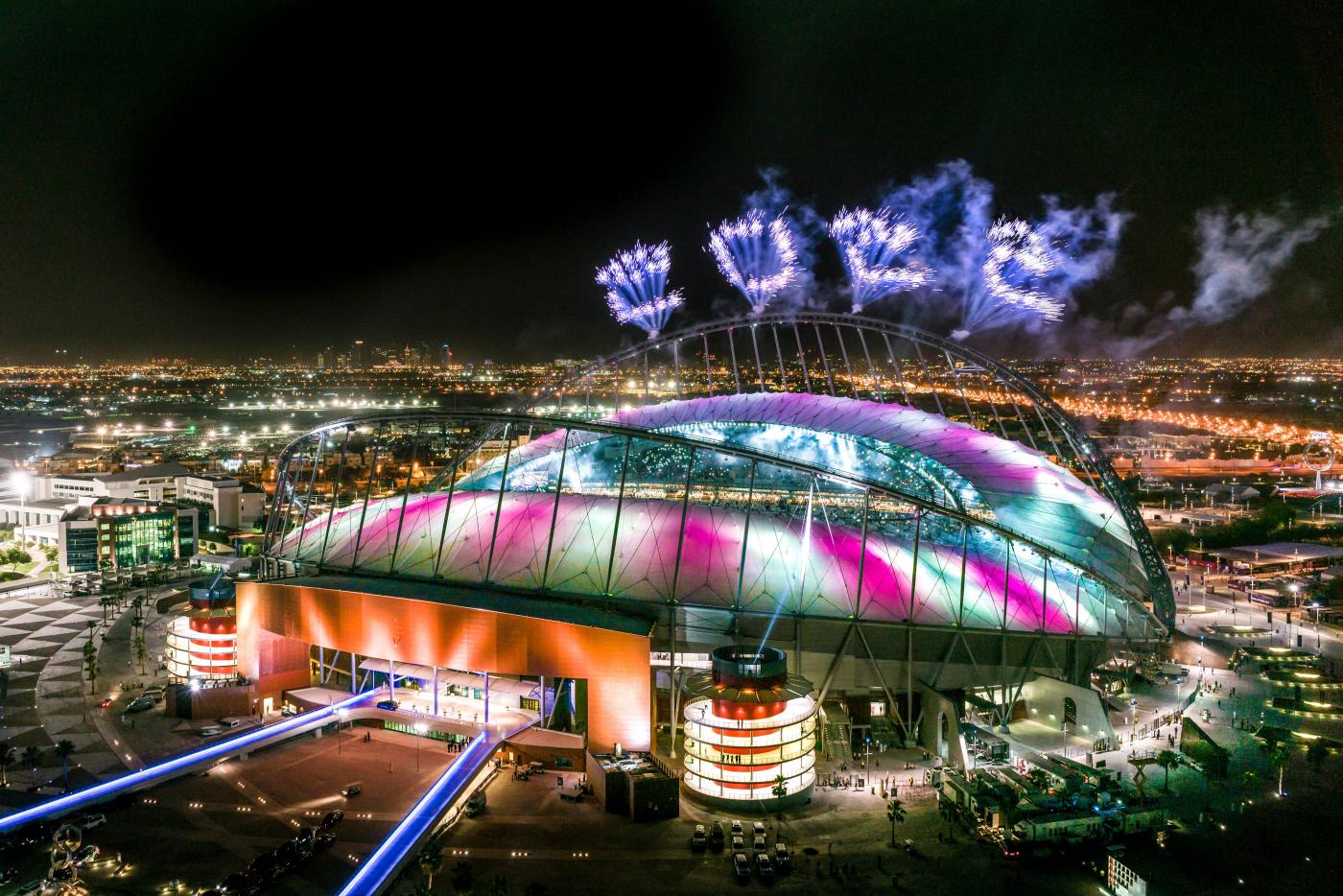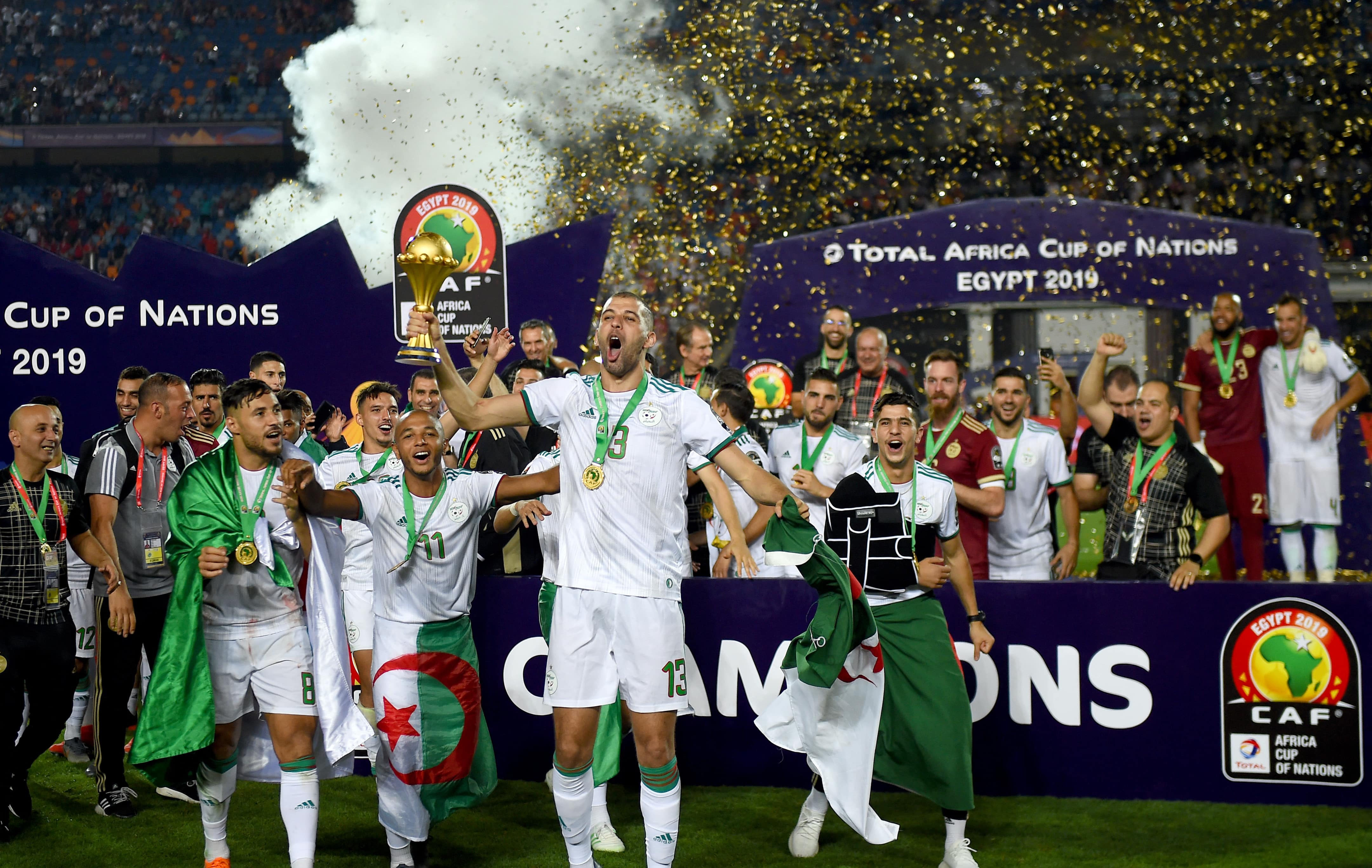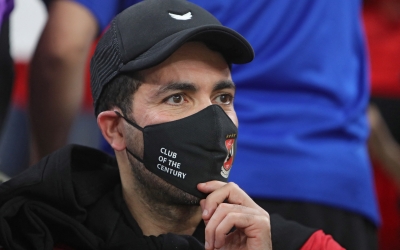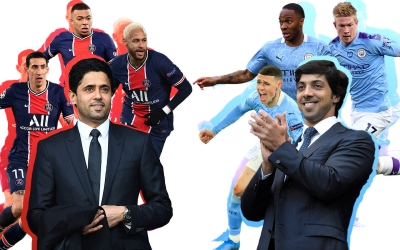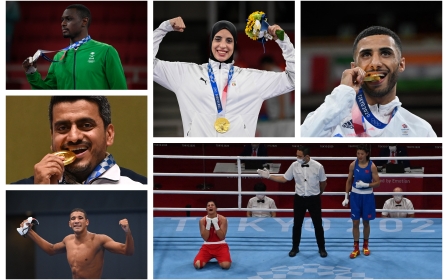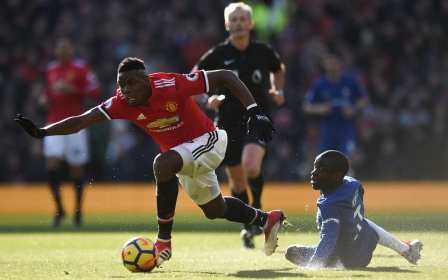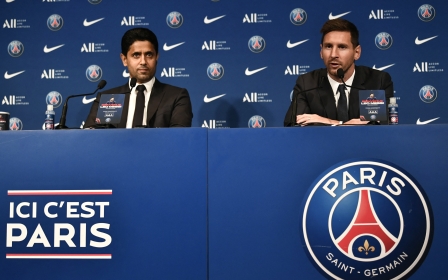What to expect from the new football season in the Middle East
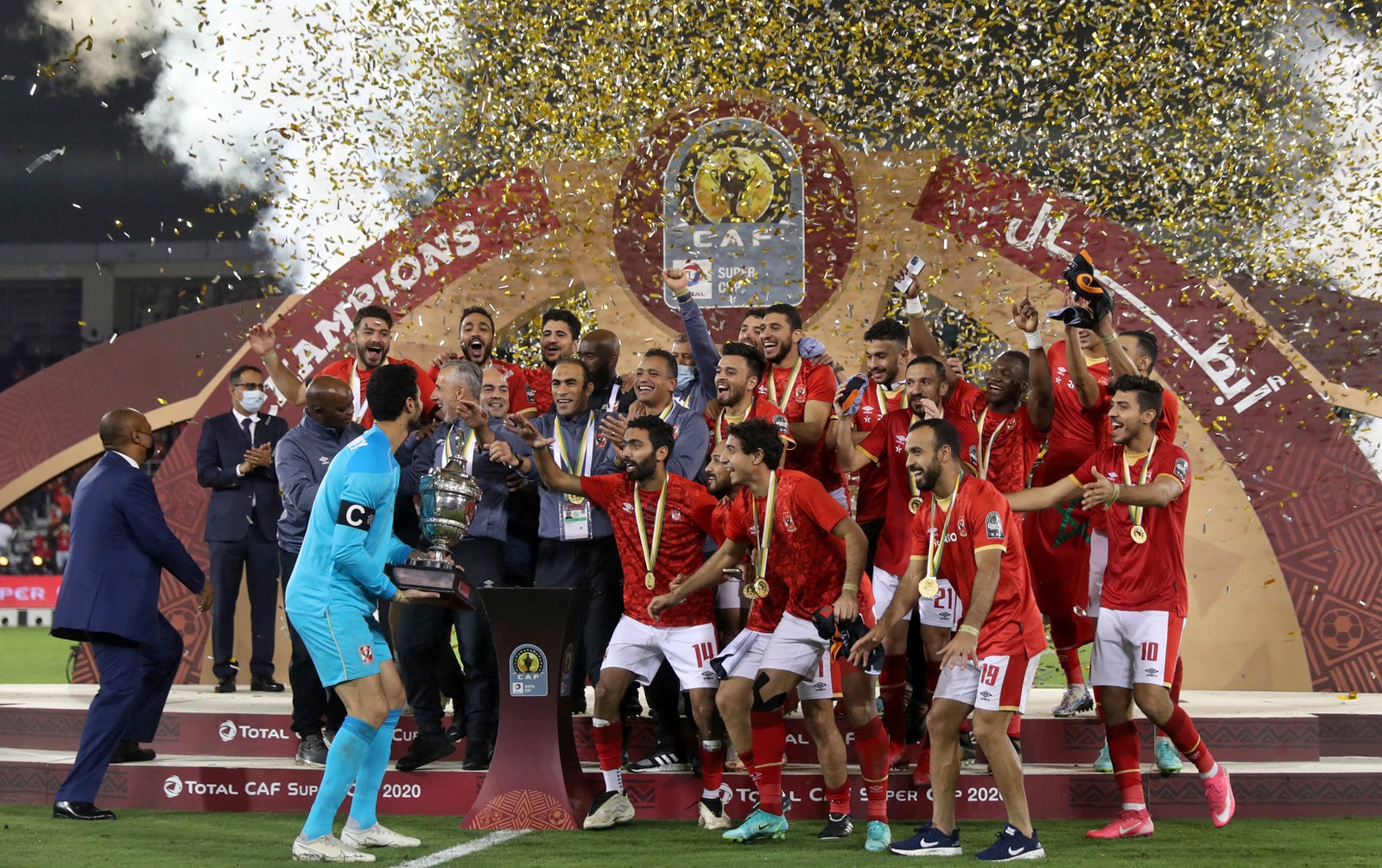
Major sporting events may have been temporarily suspended due to the Covid-19 pandemic last year, but they were well and truly back this summer with the delayed Euro 2020 football tournament and the Tokyo 2020 Olympics.
The latter was of particular interest to fans from the Middle East and North Africa, with athletes from the region making their mark with several high-profile podium finishes.
And there's a whole lot more to look forward to in the region.
Next year, all eyes will be on Qatar as it becomes the first Middle Eastern country to host the Fifa World Cup and there's plenty of football in between now and then.
Middle East Eye picks out some of the major footballing events over the next 12 months and some of the stars to look out for:
New MEE newsletter: Jerusalem Dispatch
Sign up to get the latest insights and analysis on Israel-Palestine, alongside Turkey Unpacked and other MEE newsletters
World Cup qualifiers
Qatar may be guaranteed to play in the 2022 World Cup as hosts, but several other MENA teams will be hoping to join them.
Between four and five places will go to teams from the Asian Football Confederation. Qualifying started in 2019 with 46 teams competing - 12 now remain, of which seven are from the Middle East.
Iran and Saudi Arabia are among the favourites to make it, alongside Japan, South Korea and Australia.
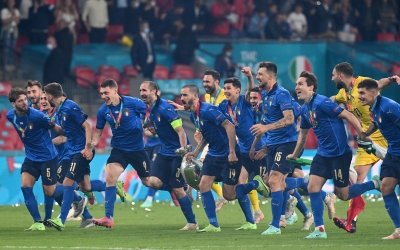
The United Arab Emirates, Syria, Lebanon and Oman will all be trying to qualify for the first time ever, while Iraq aims to rejoin the global elite after its sole appearance in Mexico 1986.
Meanwhile in African qualifying, Arab nations will fancy their chances at taking the majority of the five places up for grabs.
Algeria, Tunisia, Egypt and Morocco have all featured in recent World Cups, and their fans will no doubt be excited at the prospect of a World Cup in a fellow Arabic-speaking nation.
Relative minnows Sudan and Mauritania have made it to the latter stages of the continent’s qualifying procedures, but will face stiff competition.
In Europe, Turkey is currently at the top of its World Cup qualifying group. The Crescent Stars will be aiming to get over a disappointing Euro 2020, in which they lost all three of their matches.
Meanwhile, although Qatar have automatically qualified as hosts, they have been included as a "shadow" team in the European qualification process, as part of their preparations ahead of next year's tournament.
Fifa Arab Cup
In December, Qatar will host the Fifa Arab Cup, a new tournament involving all the teams from the Arab world.
It will be the first major pan-Arab men’s football tournament since the Arab Nations Cup, which has been held on an irregular basis between 1963 and 2012.
The tournament will act as a test for Qatar's infrastructure and planning, with the matches taking place in six of the eight venues for the World Cup.
“Through football, this tournament will unite over 450 million people from across the region,” Fifa President Gianni Infantino said last year.
“We are confident that the Fifa Arab Cup will help to build excitement across the region as we edge ever nearer to hosting the first Fifa World Cup in the Middle East and Arab world in 2022,” Infantino added.
It remains to be seen whether the top Arab players will participate in the three-week tournament (being held from 30 November to 18 December 2021), given that it clashes with the European football calendar.
African Cup of Nations
The 2021 African Cup of Nations (Afcon) will have the most ever Arab countries in its history, with seven nations from the region competing at the tournament in January 2022.
Algeria will be the favourites to defend their title, following their stunning victory in Egypt two years ago.
Egypt - Afcon’s most successful team with seven titles - will be looking to bounce back from a disappointing home tournament in 2019, after crashing out in the last 16 stage.
Icon Mohamed Salah has won the English Premier League and the Uefa Champions League at club level with Liverpool, but will now be looking to win his first major trophy with his national team.
Morocco will be strong contenders too, with the likes of Chelsea’s Hakim Ziyech and Paris Saint Germain’s Achraf Hakimi starring in a team filled with players from across Europe’s top leagues.
Tunisia, who won the Afcon in 2004, will aim to build on their semi-final run in 2019.
Meanwhile, 1970 winners Sudan, Mauritania and debutants Comoros make up the remainder of the contingent from Arab League member countries.
The tournament will take place in Cameroon between 9 January and 6 February 2022, and all the top players are set to feature despite the clash with the club football season.
Fifa Club World Cup
The Fifa Club World Cup, a competition between the winners of all the major continental club competitions, has long been dominated by European teams.
But one of its most successful ever clubs is Egypt’s Al-Ahly.
The Cairo-based team has qualified for its seventh Fifa Club World Cup: the second highest number of participations behind New Zealand's Auckland City.
Earlier this year, at the delayed 2020 event, Al-Ahly beat Brazil’s Palmeiras in a penalty shootout in the third place play-off to match their best ever finish in the tournament.
The competition, which took place in Qatar, was notable for reuniting Egyptian football legend Mohamed Aboutrika with his former team for the first time since going into political exile in Qatar.
Al Ahly may yet be joined by another Middle East based club, as seven of the 16 remaining teams in this year's Asian Champions League are from Iran, Saudi Arabia and the UAE.
The Fifa Club World Cup takes place in Japan between 9 and 19 December 2021.
Uefa Champions League
Last season, Chelsea’s Moroccan star Ziyech was the only player from the MENA to lift Europe’s top trophy, the Uefa Champions League Cup.
Algerian star Riyad Mahrez lost out in the final with Manchester City, and will again try to help his Emirati-owned team to its first ever Champions League trophy.
But City’s biggest rivals will likely come in the form of France’s PSG, where Moroccan Hakimi was part of a blockbuster summer transfer window, which included legend Lionel Messi.
For PSG’s Qatari owners, a victory in the Champions League would be the perfect prelude to hosting the World Cup just months later.
Several other Middle Eastern players will line up in this year's tournament, including Iran’s Mehdi Taremi, who will play for Porto again this year, after scoring the goal of the tournament last season. His countrymen Sardar Azmoun will also look to make an impact on the tournament for Russian club Zenit Saint Petersburg.
A host of Turkish players will feature too, including Lille trio Burak Yilmaz, Zeki Celik and Yusuf Yazici, who helped the northern French club to a sensational shock league title last year.
Fellow Turks Hakan Calhanoglu (Inter Milan) and Merih Demiral (Atalanta) will also line up among Italy's top teams.
Joining Ziyech and Hakimi from Morocco are Sevilla trio Munir El Haddadi, Yassine Bounou and Youssef En-Nesyri, and Ajax winger Oussama Idrissi.
The Champions League group stages starts on 14 September, with the final set to take place on 28 May 2022.
Middle East Eye delivers independent and unrivalled coverage and analysis of the Middle East, North Africa and beyond. To learn more about republishing this content and the associated fees, please fill out this form. More about MEE can be found here.


